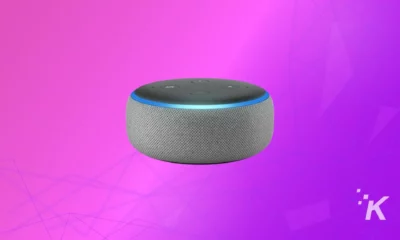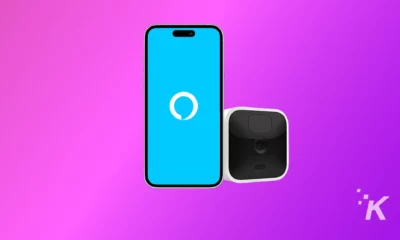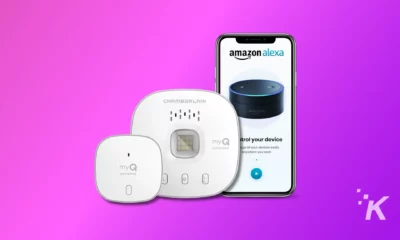Alexa
Echo devices will soon send all your Alexa data to Amazon
Amazon’s statement suggests that this change is related to the development of its AI-powered Alexa features.

Just a heads up, if you buy something through our links, we may get a small share of the sale. It’s one of the ways we keep the lights on here. Click here for more.
Alexa devices have a “do not send voice recordings” setting that processes voice requests on the device instead of transmitting them to Amazon’s servers.
However, starting March 28th, Amazon will no longer allow Alexa users to opt out of sending their voice recordings to the cloud. (via: The Verge)
This feature provided slightly more privacy since it limited Amazon’s ability to store and analyze customer voice data.
However, Amazon is now removing this option, meaning that all voice interactions with Alexa will be sent to the cloud. Users can still enable a setting to automatically delete recordings after they are processed.
It’s important to note that the “do not send voice recordings” setting was only available on a few specific devices: the Echo Dot (4th Gen), Echo Show 10, and Echo Show 15.
The settings didn’t entirely prevent voice data from reaching Amazon, even on those devices. Instead, it converted spoken commands into text before sending them to the cloud.
Now that Amazon is eliminating this setting, affected devices will be switched to the “don’t save recordings” option, which ensures that voice data is deleted immediately after processing.
If users want to check what Amazon has stored about their interactions, they can review their Voice History panel. This feature is useful for monitoring since Amazon sometimes makes policy changes without clear notification.
Amazon has not provided a direct reason for this change, but a company statement suggests that it is related to the development of AI-powered Alexa features.
Unlike simple text-based commands, advanced AI-powered voice interactions may require access to complete audio recordings to analyze things like tone and emotion.
Certain Alexa features, such as personalized voice recognition, also depend on storing and analyzing audio.
For those looking for a more private smart home setup, alternatives like Home Assistant offer ways to run voice commands locally without sending data to the cloud.
What do you think about Amazon’s decision to send all Alexa data to cloud? Will you stop using Alexa because 9f this move? Tell us below in the comments, or reach us via our Twitter or Facebook.
























